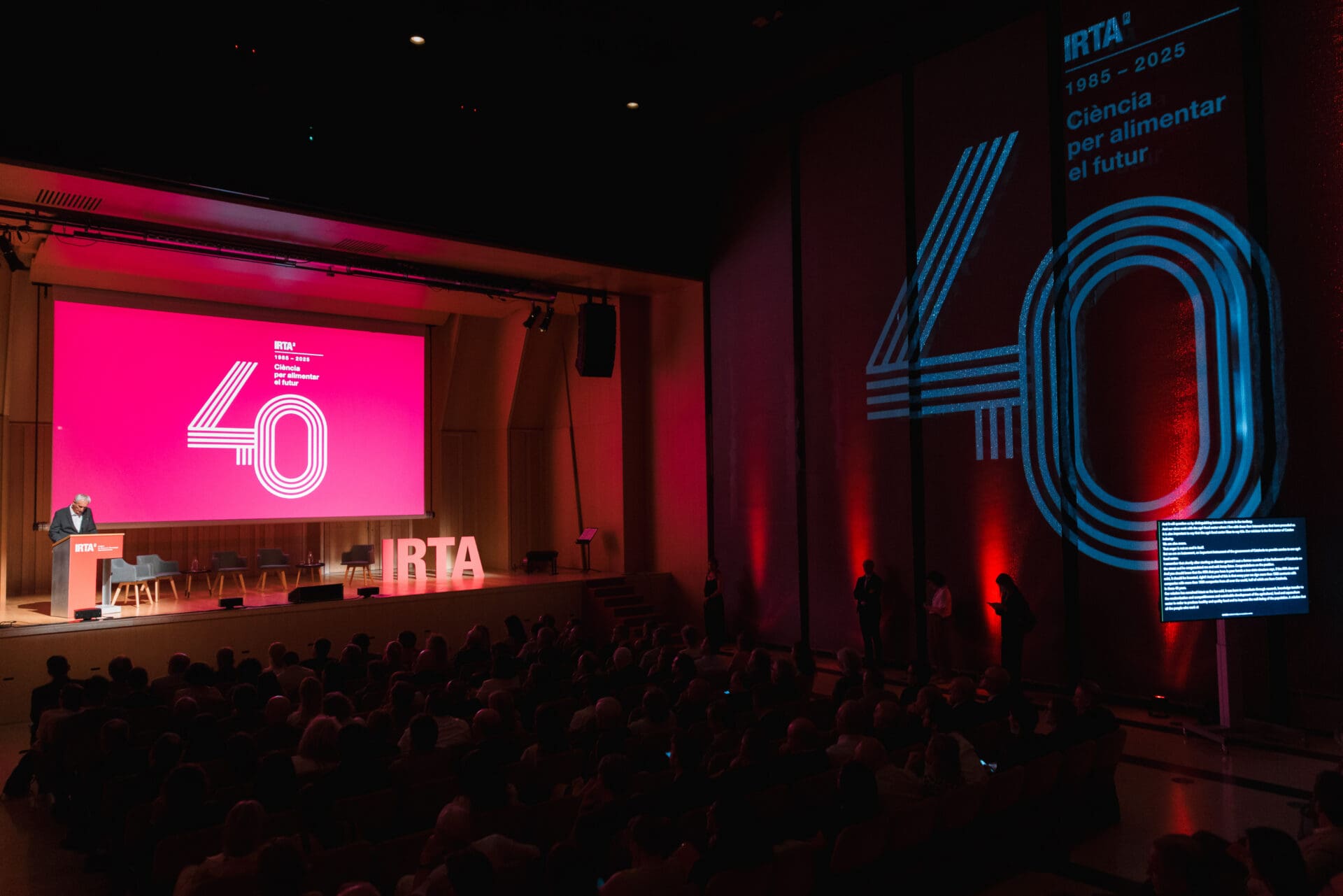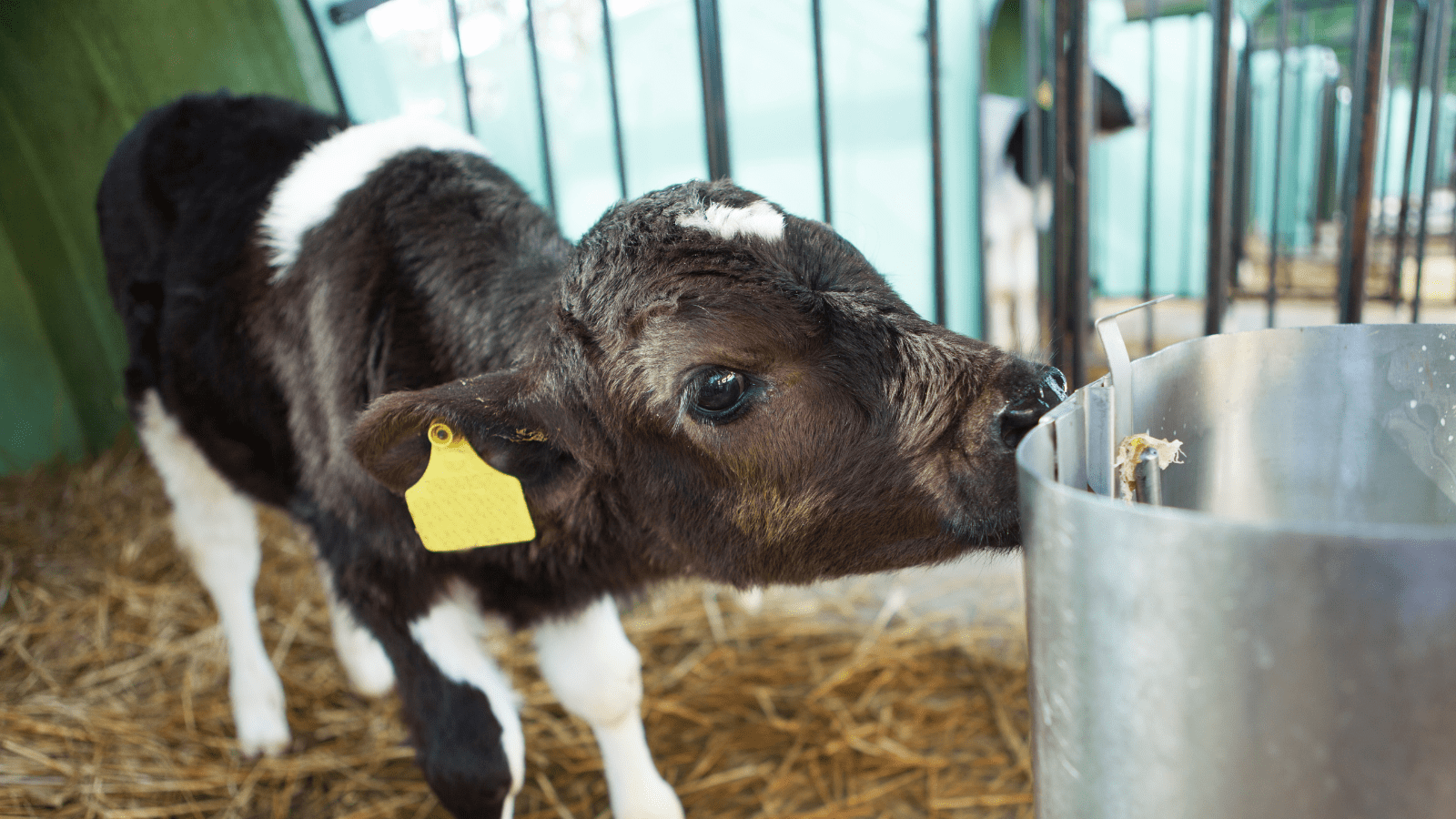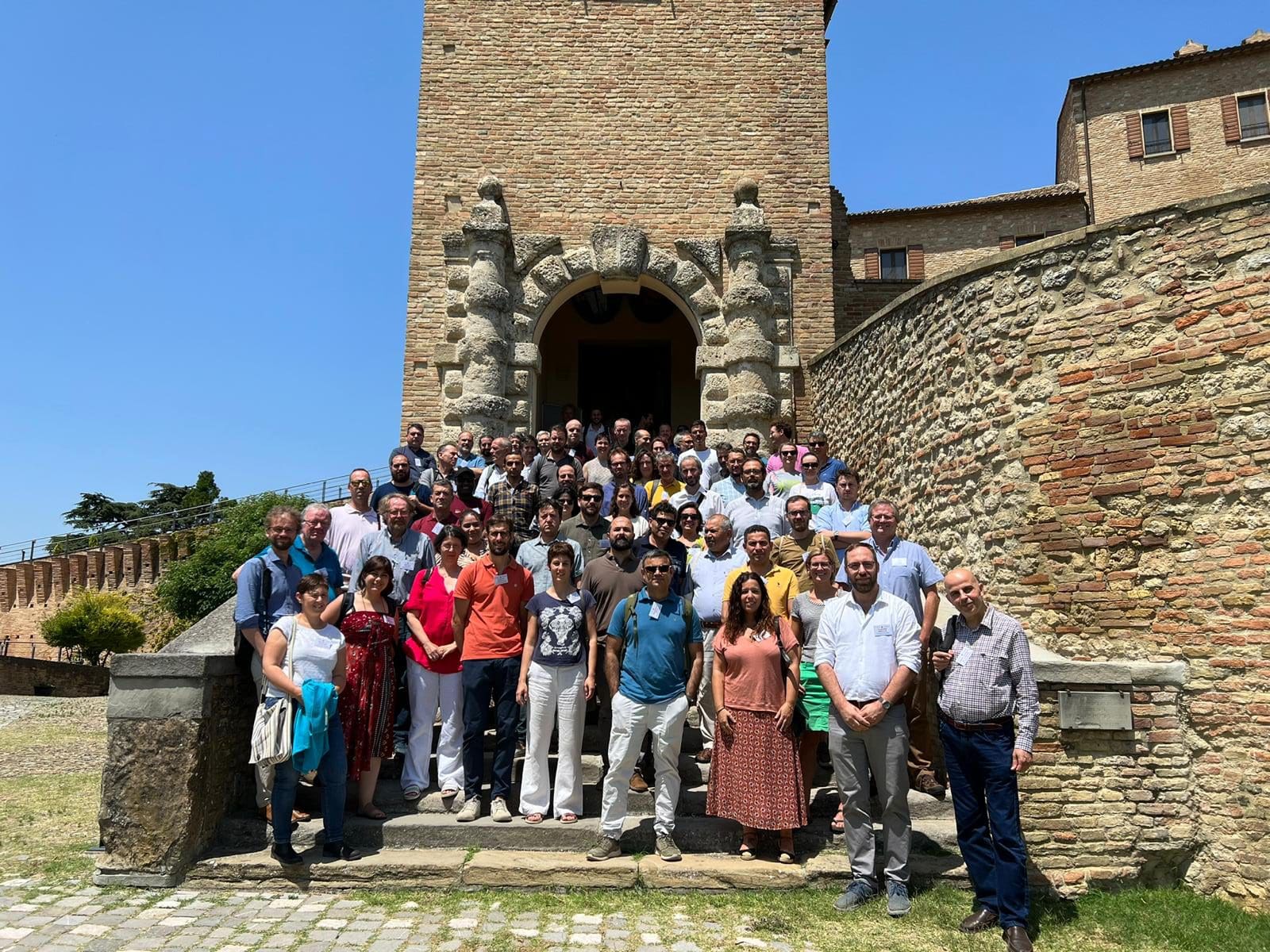
FruitCREWS, an innovative project in sustainable fruit production, held its first annual meeting on 10-11 July at the historic Residential Centre of the University of Bologna (CEUB) in Bertinoro (Italy). The meeting brought together more than 70 participants, including key stakeholders such as industry experts, researchers and international members from 23 countries in the European Union and beyond. IRTA is one of the partners of this project, which builds on the experience of the Efficient Use of Water in Agriculture programme.
The FruitCREWS project aims to understand the physiological behaviour of fruit tree crops in response to drought stress in different environments. In this way, the best tools can be identified to monitor the water status of plants in real time, allowing growers to accurately schedule irrigation by adopting new technologies.
The meeting consisted of a dynamic combination of discussions and field trip. Working groups delved into various topics, such as the evaluation of physiological datasets for irrigation sensitivity, sustainable irrigation models based on physiological parameters and various irrigation strategies, as well as the advantages and limitations of decision support systems (DSS) and the best ways to generate guidelines for policy makers. More than 25 speakers presented their cases, fostering in-depth discussions and a productive exchange of knowledge.
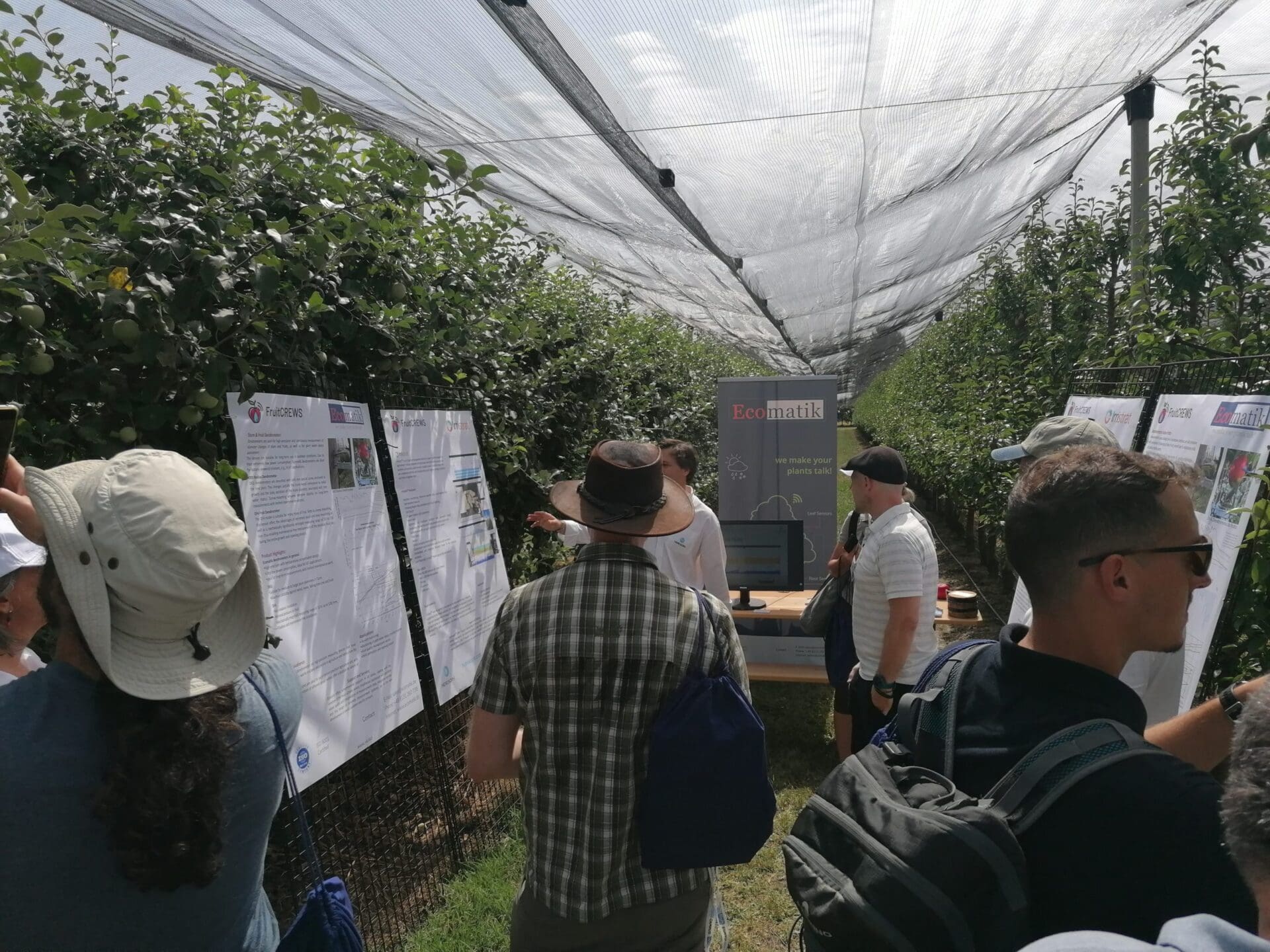
Subsequently, on 12 July, a workshop was offered to showcase state-of-the-art sensors and decision support systems from eight companies (IRRIFRAME, NETAFIM, DELTA-T, FLORAPULSE, TREETOSCOPE, SENTEK, HYDROSOPH/ECOMATIK, and SYSMAN/ NETSENS), thus facilitating an exchange of ideas and best practices.
As a conclusion to these days activities, participants met at the regional Department of Agriculture of the Emilia-Romagna region, where leading experts such as Valtiero Mazzotti, head of the Regional Department of Agriculture, Giuseppina Felice, head of the Sector for Business Competitiveness and Innovation Development, and Adriano Battilani (ANBI - Irrigators of Europe), among others, shared their views. In addition, an interesting round-table was organised where researchers from the United States, Egypt, South Africa, Israel, Turkey and Portugal presented the situation in their countries regarding sustainable technologies and innovation for water management in fruit growing regions.

According to Brunella Morandi and Virginia Hernandez Santana, president and vice president respectively of FruitCREWS, "The success of this inaugural meeting is a testament to the global collaboration and dedication towards sustainable water management in the fruit production industry. We are delighted with the enthusiastic participation and impactful debate that took place during the event".
The first annual FruitCREWS meeting not only served as a platform for knowledge sharing, but also laid the groundwork for future collaborations and advances in sustainable fruit production. An occasion that served to unite global players in the fruit industry to address the critical challenge of sustainable water management. The emphasis on data sets and physiological modelling reinforced the importance of data-driven decision making for effective irrigation strategies, ensuring that water resources are used efficiently.
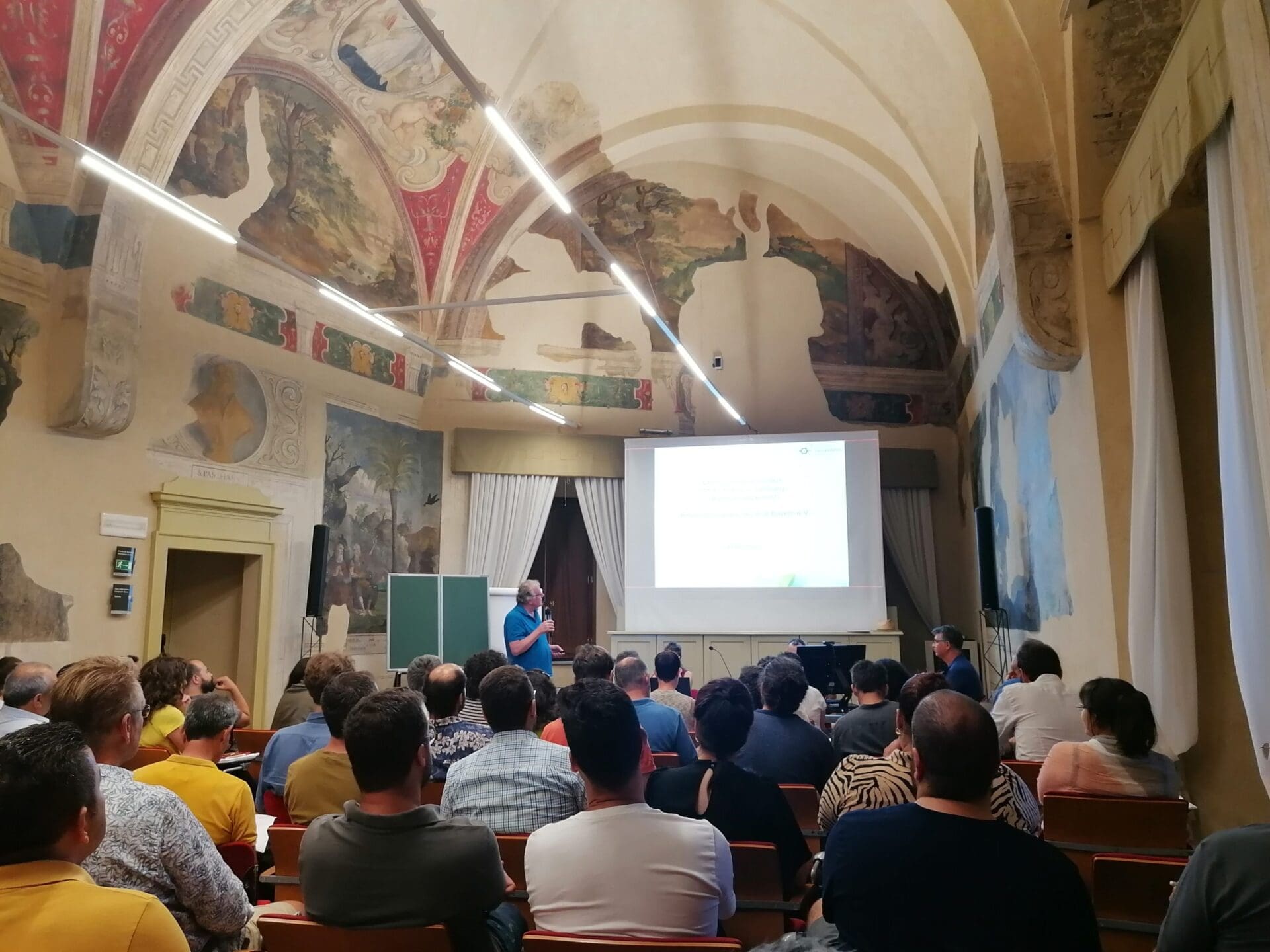
FruitCREWS also aims to promote sustainable water management practices by engaging with policy makers, influencing regulations and promoting incentives to adopt sustainable water use techniques. The presented sensors and decision support systems highlighted the role of innovative technology in precision irrigation, enabling farmers to optimise water use and minimise environmental impacts.
Project activities will focus on: 1) Identifying the most useful physiological parameters for quantifying drought stress using cost-effective and easy-to-use sensor tools; 2) Comparing and evaluating the performance of existing models for quantifying plant water needs during drought, for possible implementation in decision support systems; 3) Define the most effective (deficit) irrigation strategies for different crops and environments; and 4) Identify gaps for improving existing DSSs based on the knowledge generated by the network, while taking actions to facilitate their dissemination to stakeholders and adoption by end-users.
You can find more information about the project at:

